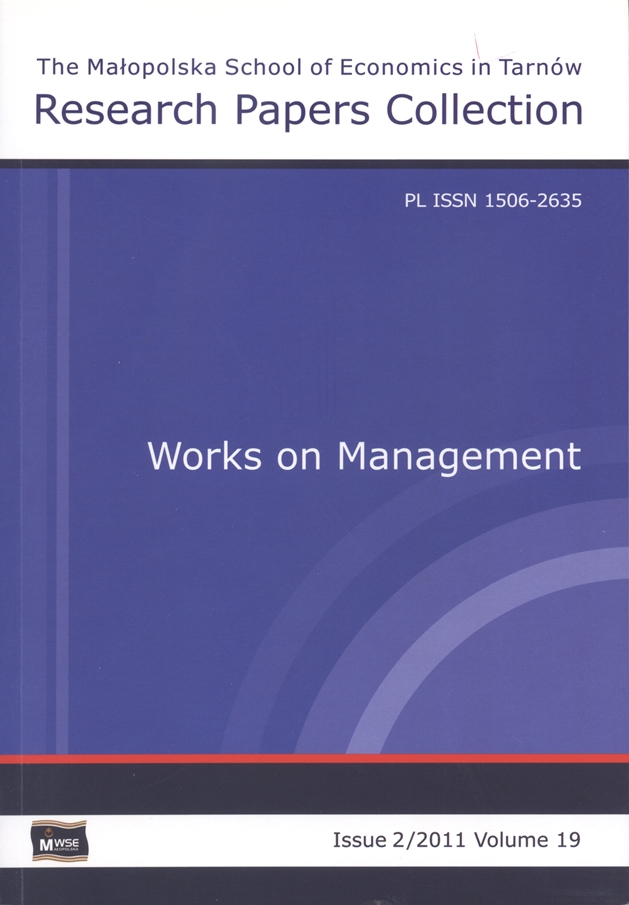Abstract
The objective of the paper is presentation of the basic research approaches which significantly enhance designing the development of an organisation (activities of companies, institutions, larger systems). They constitute concepts of attitudes to problems in designing and, at the same time, express a specific research angle for creating future economic, organisational, technical and others solutions.
The structure of the paper follows a specific chronology of changes in universal research approaches, that is the ones that were relatively most commonly applied. It has to be emphasised that research approaches only give directions to studies and implementations, and the developed formula of analytical instruments is represented by detailed methodologies and their methods, techniques, and algorithms (which corresponds with methodology understood pragmatically). The research approaches highlighted in the paper are: the functional approach, the methodology of the functional analysis of the product, the value analysis, the expert approach, benchmarking, improvement and base designing, the scenario method and foresight. These approaches are based to a higher or lesser degree on diagnostic research (assessment of the actual situation), relating them then with development of template models. The latter form the basis for preparation of functional solutions, that is various types of designs, products, strategies, plans, scenarios, systems of management and other.
The paper consists of eight sections. Preliminary notes define the review function of text and the reference of the selected research approaches. Functional approach discusses the scope of applications of this concept and the essence of the technique of function study. Then, Methodology of functional product analysis presents the characteristics of its individual stages, with special attention paid to determination of the degree of meeting the function. This section is supplemented with presentation of the scope of applications of the Method of value analysis and the stages of the research proceedings in this method.
The next section is dedicated to the Expert approach, which presents the Delphic method and the cycle of organisation of expert research. The next section, Benchmarking, highlights the template issue and presents types of benchmarking and its methodology (according to R. C. Camp). Improvement and base designing discusses the scope of these concepts and explains the essence of the system-based approach, pattern modelling and idealisation. The last section of the paper deals with the Scenario method and the Foresight concept. It presents different research attitudes towards the future, the specific nature of the scenario method and its close relation to the foresight concept. As regards the last issue, its features, the scope of applications and methodology are discussed.
References
Bright J. R., Schoeman M. E. F. 1978. Prognozowanie w technice. Transl. by K. Kasiński et al. Warszawa: Wydawnictwa Naukowo-Techniczne.
View in Google Scholar
Cieślak M. (ed.). 2005. Prognozowanie gospodarcze: Metody i zastosowania. Warszawa: Wydawnictwo Naukowe PWN. ISBN 83-01-14421-1.
View in Google Scholar
Fabiańska K., Rokita J. 1986. Planowanie rozwoju przedsiębiorstwa. Warszawa: Państwowe Wydawnictwo Ekonomiczne. ISBN 83-208-0547-3.
View in Google Scholar
Godet M. 1987. Scenarios and strategic management. London: Butterworths Scientific Publications.
View in Google Scholar
Klasik A. (ed.). 1993. Planowanie strategiczne. Warszawa: Państwowe Wydawnictwo Ekonomiczne.
View in Google Scholar
Kotarbiński T. 1975. Traktat o dobrej robocie. Wrocław, Warszawa and Kraków: Ossolineum.
View in Google Scholar
Lisiński M., Martyniak Z. 1981. Analiza wartości organizacji, Warszawa: Książka i Wiedza.
View in Google Scholar
Martyniak Z. 1999. Metody organizacji i zarządzania. Kraków: Wydawnictwo Akademii Ekonomicznej w Krakowie. ISBN 83-7252-014-3.
View in Google Scholar
Martyniak Z. 2002. Nowe metody i koncepcje zarządzania. Kraków: Wydawnictwo Akademii Ekonomicznej w Krakowie. ISBN 83-7252-142-5.
View in Google Scholar
Stępowski M. (ed.). 1977. Nowe techniki organizatorskie. Warszawa: Państwowe Wydawnictwo Naukowe.
View in Google Scholar
© Copyright by Małopolska School of Economics in Tarnów. The articles are available under the Creative Commons Attribution NonCommercial-NoDerivatives 4.0 International License


